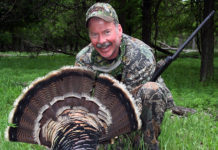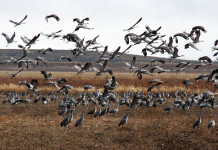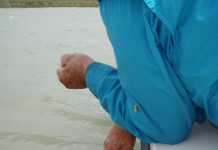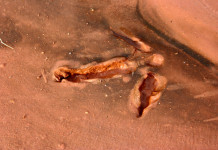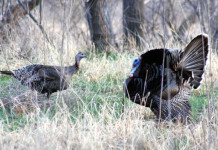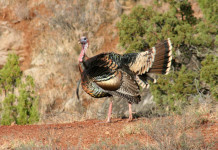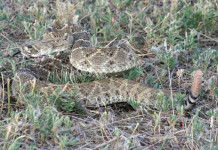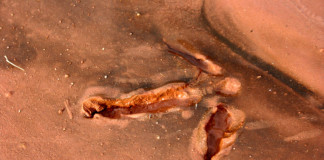The massive whitetail buck had evaded coyotes when he was a youngster, fought off antlered competitors in his middle years and outwitted a slew of hunters in the fading twilight of his life. However, in the end the monarch was found by ranch hands near a boundary fence parallel to a county road early one morning.
It didn’t take much to piece together what had transpired: The buck had been seen from the roadway by someone tooling past with little regard for much, who also happened to have a rifle and decided to use it in violation of state game laws. Upon felling the impressive animal, the deviant figured it would be too much work to mess with the animal or cover their crime, and simply drove away into the fading light, never to be seen again.
Much to the chagrin of wildlife enforcement officers, there is a strong criminal element that continues to do things that boggle the mind. Whether they do it out of spite or because they don’t know any better, those who brazenly break wildlife laws continue to soil the reputation of the law-abiding hunter or angler. And in this day of the 24-hour news cycle and sound bite fever, it only takes one bad incident to spoil things for the rest of us who partake in legal outdoor activities, including another Texas deer hunting season, which begins for most hunters Saturday.
However, thanks in large part to the New Mexico Department of Fish and Game, anti-poaching programs have sprung up in every state in the last three decades and it’s easier than ever for the average person to help stamp out this kind of behavior.
The NMDFG started Operation Game Thief in 1977 as a way to stem the poaching tide in the state. The program was modeled after Crime Stoppers, which began in 1976 in Albuquerque, New Mexico, and has achieved unprecedented success. OGT offers rewards like the Crime Stoppers program. If a lawbreaker is arrested or issued a citation on the basis of information provided by an anonymous caller, a reward is authorized.
OGT operations and other anti-poaching programs in each state have hotlines that are monitored 24 hours a day, seven days a week. Some states also have an online form anonymous tippers can fill out. And in Texas, if you don’t wish to give your name when calling in, you will be assigned a code number.
In most cases, states will quantify the reward amount based on the severity of the crime. If an animal is deemed a trophy based on Safari Club International measurements, poachers can face stiffer monetary penalties and possible jail time, which is a big improvement over penalties that had been assessed in the past in many states.
During the life of OGT in Texas, more than 28,000 calls have been received on wildlife violations, more than $1,180,000 in fines have been assessed and more than $200,000 in rewards have been doled out.
OGT, adopted in Texas in 1981, is crucial to stopping many wildlife violations. Anyone who witnesses something illegal – or even thinks it may be illegal – should call the toll-free hotline, 1-800-792-GAME, with as much detailed information as possible as soon as they can after witnessing or hearing about any type of wildlife violation. OGT personnel have said that in the past many people often will wait until a Monday or Tuesday after seeing a violation over the weekend to call, which only makes it harder to track down information on leads that are provided.
The program also has been adapted for smartphones, offering a text tip line. To send a confidential tip, enter 847411 in the to box, and in the text box start with TPWD and your message and hit send. It is an anonymous system and cell number and identifying information is encrypted and does not reveal any information regarding the origination of the text.
The key to the program is that it provides a vital link between the public and what certainly is a stretched net of game wardens. In some Rolling Plains and Panhandle areas there is only one warden for every two counties, which makes it almost impossible to track certain crimes that undoubtedly happen every year. And while game violations are the primary target of the program, the public is advised to call in other things they think may be violations, including environmental crimes, crime such as arson in state parks and even the uprooting of artifacts.



